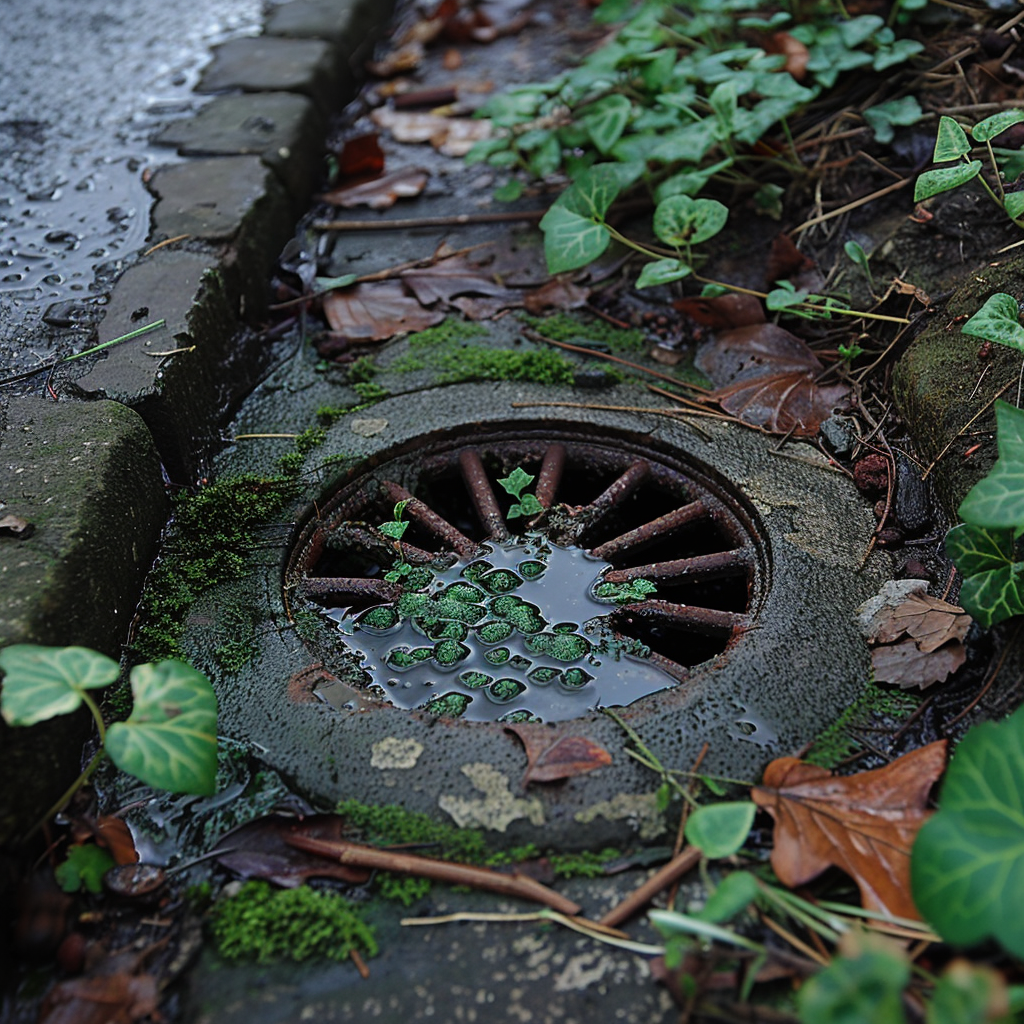Key points
• Check Property Documents: To find out if you have a septic tank or are hooked up to the public sewer, look at property papers. This would include “as-built” sketches of your house, property surveys, or details shared when you bought the place. These papers usually tell you everything about your home’s waste system.
• Spot Signs on the Ground: You can also spot clues outside to figure out which system you’ve got. If it’s a septic tank, you might see a cover or a big lid on your lawn that shows where the tank is. But if your property’s on the city sewer, there could be small pipes sticking out of the ground close to your house—these are for getting to the sewer line if it needs work.
• Ask the Officials: When digging through records or walking around your yard doesn’t clear things up, get in touch with local government offices, like the building or health department. They keep track of septic tanks and sewer hookups and can fill you in. If needed, they’ll even come out and take a look themselves.
Contents
Spotting a Septic Tank
You might not notice if there’s a septic tank around. To find one, you could look for lids in the yard that let people get to the tank for check-ups. The lid is typically green. Or you might see that the grass is greener over the drainfield. You can also ask the county health department – they keep info on these systems.
How to Tell if You’re Connected to a Public Sewer

Figuring out whether your place is hooked up to the city sewer system can be pretty straightforward. Keep an eye out for manhole covers in the street – that’s a dead giveaway you’ve got a sewer line nearby. Look around for any capped pipes sticking out of the ground near your property’s edge; those could be sewer clean-outs. Or, take a gander at local maps, they’ll show you all the utility hookups around your neighborhood.
A big hint that you might not have a septic tank, and instead are tied into the public sewer, is if you don’t spot one on your property. Last but not least, have a look at your utility bills – if there’s a charge for sewer usage, that’s solid proof you’re connected.
Check It Out Yourself
First up, take a look around your yard. If there are covers or green patches of grass, you might have a septic system. No pipes or covers outside probably means you’re on the public sewer. Just don’t break anything while you’re snooping around.
Property Records and City Maps
Next, property records and city maps can clear things up. Your house’s paperwork might show if you’ve got a septic system. Or call the local zoning office or health department for a sewer map to see if you’re connected to it.
Expert Help
Still confused or want an expert opinion? Hire a pro to figure out your waste situation and check its health. They’ll consider how old it is, how big, and previous care. That way, you’ll know what’s up and what might need fixing.
Figuring out if your place has a septic tank or hooks up to a public sewer needs some investigating. Doing inspections, checking records, and bringing in pros are all part of sussing it out. Being clued up helps with good upkeep and staying within environmental laws.
Knowing your home’s waste system—septic or sewer—is key because laws and the environment depend on it. Depending on where you live, you might need permission for certain stuff and follow rules so everything’s safe and clean. Septic systems need regular checks to avoid polluting things.
Frequently Asked Questions (FAQ)
Can checking with the local health department confirm the system I have?
Yes, contacting your local health department can provide you with records indicating whether your property is connected to a septic tank or sewer line.
Does my home's age give clues about its waste system?
Certainly, the age of your home can hint at the type of waste system installed, as older homes may more likely use septic tanks, particularly in rural areas.
Are permits a reliable source for system details?
Absolutely, reviewing permits and inspection reports from the health department or city planning office can reveal details about your home’s waste system.
How can professional inspectors assist in identifying my waste system?
Professional inspectors use specialized equipment and their expertise to determine if a home utilizes a septic system or is linked to sewer lines, often inspecting components like risers and lids.
Will my property's diagram show a septic tank location?
If available, a property site diagram should indicate the septic tank’s position; otherwise, a professional service like Anderson Septic in Grass Valley, CA may help you locate it.
Is there a physical sign that designates septic systems versus sewer connections?
Often, physical indications such as visible risers or lids in your yard suggest a septic system, whereas sewer connections generally lack these features at ground level.
Can I determine my waste disposal system by consulting a public record?
Public records, often available through the local government or health departments, can provide information on whether your property has a septic tank or is serviced by city sewers.
Might unusual landscaping features indicate a septic drain field?
Yes, inconsistencies in landscape growth or depressions in the yard might hint at an underlying septic drain field, differing from properties with sewer lines.
Do preferences in laundry habits impact the choice between septic and sewage systems?
Preferences themselves don’t affect the system choice, but the increased volume and chemicals from laundry can influence a homeowner’s maintenance habits and decisions for a septic system.
In what case should I count on hiring a contractor for system verification?
Consider hiring a contractor if you desire certainty or face difficulty in verifying your wastewater treatment method through standard research routes like records or visual inspection.

I’m Tim Robberts, a seasoned wastewater treatment & septic system expert with over 40 years of experience in the field. My career began as a septic tank installer, and I quickly gained a reputation for my attention to detail and commitment to excellence. Over the years, I’ve honed my skills in designing, installing, and maintaining septic systems for residential and commercial properties.
